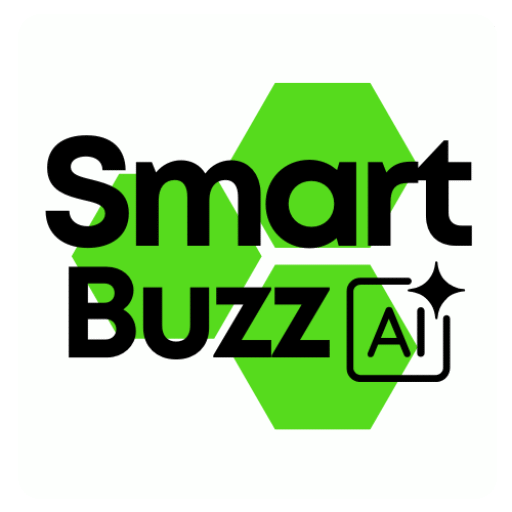
This article talks about using AI agents for appointment scheduling in a way that really speaks to the everyday user. It goes over benefits and challenges while looking at tools that assist in organizing schedules, cutting down on time wasted and even reducing no-shows, in industries like healthcare and finance, making it a useful brief guide for everyone.
Table Of Contents
- AI Agent for Appointment Scheduling: Basics and Features
- Integration with Calendar Apps and CRMs
- Sector-Specific Benefits
- Real-Life Examples and Tips for Reducing No-Shows
- Best Practices for Successful AI Implementation
- Frequently Asked Questions (FAQs)
- Sources
Key Takeaways
- AI agents for appointment scheduling save time by automating the booking process and reducing manual tasks.
- Integrate with calendars and CRMs for a seamless workflow, preventing double bookings and allowing for easy access to appointments.
- Less no-shows equals happier customers, as reminders and confirmations are sent automatically, keeping everyone informed about their appointments.
- The power of a professional social media presence running on autopilot helps you free up 10+ hours each week. This lets you focus on what really matters, like bringing in more revenue. Plus, it creates steady content flow and better connections with your audience, leading to scalable growth without the daily headache.
- AI technology is a crucial asset for industries like healthcare and finance, providing efficient scheduling solutions tailored to their specific needs.
AI Agent for Appointment Scheduling: Basics and Features
Understanding AI in Appointment Scheduling
Appointment scheduling has moved far beyond simple calendar entries. With AI agents stepping in to manage bookings, cancellations, follow-ups and reminders, we now have an intelligent system that adapts to both staff and client needs. These systems work on predictive algorithms that learn from past behavior and fine-tune appointment times, consequently reducing manual work and streamlining operations.
- AI-driven systems use natural language processing to understand customer requests
- They can adjust schedules in real time, even factoring in last-minute changes
- Automated reminders help in reducing the notorious no-show rates
The technology behind the AI agents is dynamic and continuously evolving. They can learn from each interaction and improve on communication, making the appointment creation process smoother every day. Notably, these agents often become part of broader systems, integrating with social media management tools like those seen in Smart Buzz AI. This allows a consistent presence that frees up hours previously spent on mundane tasks, reassigning that time to more revenue generating activities.
Key Features
- 24/7 Availability: Unlike human scheduling representatives, the AI agent is available around the clock. It can manage requests during off-hours, making the service accessible internationally.
- Real-Time Updates: With calendar synchronization, any changes get updated instantly. This reduces conflicts and errors.
- Customization: Some systems allow customization of responses and workflows so they reflect the business’s unique offerings.
- Integration with Payment Systems: Many AI agents can combine invoice generation and consent forms during scheduling, making the overall process more efficient.
- Data-Driven Insights: When integrated with analytics tools, these agents provide insights on the preferred appointment times and reasons behind cancellations. This enables informed business decisions.
AI agents for appointment scheduling are designed to keep interactions simple yet effective. They are commonly adopted across various sectors because they offer a robust set of features that reduce human errors and improve the booking experience. Even though the technology is quite advanced, end users will find the interface straightforward, ensuring that they don’t have to master a complicated system.
Integration with Calendar Apps and CRMs
Linking with Calendar Apps
Integrating an AI agent into your appointment scheduling system usually begins with syncing with popular calendar apps. This helps ensure that appointments on platforms like Google Calendar, Microsoft Outlook, or Apple Calendar are always updated. A well-integrated system prevents double-bookings and accidental oversights.
- Direct API connections ensure seamless data transfers between apps
- Two-way synchronization means changes in the calendar update the AI agent’s appointment book instantly
- Security measures like OAuth help protect user data during sync processes
Step-by-step, you can set up integration by connecting your appointment software settings with your calendar account. Typically, you go to the settings panel, choose the desired calendar integration option, and follow the authentication process provided by your calendar provider.
Integration with CRMs
When it comes to connecting with Customer Relationship Management (CRM) systems, AI agents shine by reducing manual data entry. Popular CRMs can be linked using platforms like Zapier for no-code automations and scheduling tools. This integration ensures that every appointment booked is correctly logged in the CRM for future reference.
- Data Capture: The AI agent captures customer contact details and stores appointment history automatically.
- Workflow Automation: Automations trigger follow-up emails and service reminders, keeping your customer relationship dynamic.
- Personalization: CRM data can be used to tailor responses and offer personalization during scheduling interactions.
The integration process is usually straightforward, much like the calendar app syncing. You select your preferred CRM from a list, authenticate it via a secure token, and map the fields from your appointment scheduler to your CRM’s contact database. This process ensures that no data is lost and every appointment is cross-referenced for maximum efficiency.
Comparative Table of Integration Tools
| Tool | Integration Ease | No-Code Automation | Key Strength | Platform Example |
|---|---|---|---|---|
| Zapier | High | Yes | Versatile and well-known | Connects with many apps and CRMs |
| Integromat | Medium | Yes | Customizable workflows | Integrates with popular calendar apps |
| Microsoft Power Automate | Medium | Yes | Enterprise scale | Ideal for businesses on Microsoft ecosystem |
Sector-Specific Benefits
Benefits for Healthcare
Healthcare providers often encounter challenges with managing appointments, cancellations, and rescheduling emergencies. An AI agent helps by providing automated reminders and sending pre-appointment questionnaires. These measures can significantly reduce no-show rates and enhance patient engagement.
- Automated patient reminders reduce miscommunication about appointment times
- Pre-appointment forms allow patients to inform about symptoms in advance
- AI can prioritize urgent cases by scanning initial inquiry data
Hospitals or clinics can integrate these AI agents with platforms that specialize in case studies and templates related to healthcare, some of which are available on sites like Jotform. Using these templates, healthcare providers can design seamless appointment booking systems that manage both regular checkups and emergency visits without overwhelming administrative staff.
Benefits for Consulting Services
Consultants often face unpredictable schedules and last-minute rescheduling. An AI agent helps by automating the scheduling process and reducing the communication overhead. Real-time notifications ensure that both consultant and client are on the same page.
- It captures changes immediately, avoiding conflicts in the schedule
- Offers personalized time suggestions based on past interactions
- Simplifies rescheduling by offering quick alternatives
These benefits lead to a predictable flow that consultants can rely on, freeing up additional time for client engagement and core service delivery. Consulting firms may also integrate AI scheduling with social media automation tools, similar to those used in Smart Buzz AI, to promote their services and streamline client communication without constant manual updates.
Benefits for Finance Sectors
The finance sector is stringent about deadlines and meeting times. Financial advisors and institutions run into similar issues with scheduling and keeping track of appointments. Using AI agents, financial services can automate minute-precise scheduling, ensuring that every meeting is set without error.
- Automatically handle client inquiries and schedule follow-ups
- Enable secure handling of sensitive financial and personal information during the booking process
- Integrate with existing finance management systems to keep records updated for compliance
Platforms like HighLevel provide various case studies and templates to illustrate how finance professionals can integrate appointment scheduling within broader business operations. These tailored solutions ensure that consultants focus more on their financial expertise rather than administrative tasks.
Real-Life Examples and Tips for Reducing No-Shows
Real-Life Case Studies
Multiple companies have successfully implemented AI agents for appointment scheduling. For example, a mid-sized healthcare provider integrated an AI agent with their internal calendar system, resulting in a 30% reduction in no-show appointments. By automating reminders and streamlining booking processes, the provider managed to reallocate staff time to patient care rather than manual call-backs.
Consulting firms too have reported an efficient transition as they started using AI agents for scheduling. One firm that integrated its system with Cal.com noticed an immediate improvement in client satisfaction. The system allowed both consultants and clients to review and update appointments seamlessly, ensuring less disruption due to last-minute changes.
Tips for Reducing No-Shows
- Automated Reminder System: Ensure that the AI agent sends multiple reminders. This can include confirmation emails, texts, and even app notifications.
- Pre-appointment Engagement: Encourage clients to complete a quick pre-appointment survey. When clients feel more engaged before the meeting, they are more likely to attend.
- Easy Rescheduling Options: Providing an easy way to reschedule reduces the chance of cancellations turning into no-shows.
- Feedback Loop: Integrate a feature where clients can offer instant feedback if things do not go as planned, allowing immediate corrective action.
These tips can be implemented with a few adjustments in the scheduling software and can help reduce gaps in the appointment diary. It is crucial, however, that the implementation keeps the user interface straightforward and user-friendly. Familiarity with the AI agent from the client side increases trust and reduces cancellations.
How-to Instructions for Effective Scheduling
- Choose your preferred calendar or CRM integration platform. For those looking for a no-code solution, explore Zapier.
- Connect the AI agent to your calendar and CRM using the provided API authentication. This usually involves navigating to the settings menu in your scheduling tool and authorizing third-party access.
- Customize the AI responses to account for sector-specific needs. For healthcare, this may mean adding screening questions; for consulting, this might mean scheduling buffers.
- Enable automated reminder systems and test the workflow by scheduling a few dummy appointments. Monitor the system to see if reminders are sent and updates propagate between systems.
- Check the integration performance over several days, making adjustments as needed. Use insights provided by the AI to refine appointment windows based on client availability trends.
- Finally, if you are running a marketing campaign like those managed by Smart Buzz AI, ensure that your appointment scheduling is tightly integrated with your social media posts and email follow-ups for a seamless customer journey.
Best Practices for Successful AI Implementation
Understanding Business Needs
Before integrating an AI agent for appointment scheduling, it’s essential to assess your current system and identify pain points. Businesses should map out common scheduling issues and determine what features would benefit their staff and clients the most.
- Conduct an internal survey to pinpoint scheduling challenges
- Evaluate existing systems and determine integration potential with calendars and CRMs
- Consider customer feedback on scheduling experiences—often a goldmine for ideas to tweak automation settings
Step-by-Step Implementation Process
- Research and select a scheduling tool that meets your business size and industry needs.
- Prepare your current calendar and CRM software for integration. This often involves updating API credentials or upgrading to a compatible version.
- Train staff on the new system. Even though the AI agent minimizes manual input, employees should understand how it works to assist customers as needed.
- Launch a pilot phase where the AI agent is enabled for a small portion of appointment bookings. Monitor how the system handles queries and adjustments.
- Analyze data from the pilot, identifying areas for improvement such as response times or reminder frequencies.
- Roll out the AI agent across all scheduling channels, ensuring that any issues discovered in the pilot phase are corrected.
Security and Data Privacy
An essential aspect of AI scheduling is ensuring that customer data is handled securely. Integrating with trusted platforms and regularly updating privacy settings can minimize risks. Steps include:
- Using encrypted communication channels for data transfer
- Regularly updating authentication tokens and API keys
- Ensuring that third-party integrations comply with data privacy regulations
Balancing Automation with Human Oversight
Even though AI agents manage much of the scheduling work, human oversight remains essential. Monitor metrics like no-show rates and client satisfaction to gauge whether the system needs adjustments or further human intervention. A simple method is to implement a periodic review process where data collected by the AI is discussed in team meetings.
- Schedule regular audits of the AI system to ensure it meets performance targets
- Involve team members in feedback sessions to capture on-ground challenges
- Use combined insights from AI reports and human observations to refine appointment scheduling processes
Tools and Templates to Streamline Implementation
There are several resources available online that provide free or customizable templates for appointment scheduling. Some useful tools include:
- Jotform templates for healthcare intake forms
- HighLevel case studies for optimizing scheduling workflows
- Open-source solutions often shared on GitHub that can be adapted to your needs
Employing these templates helps businesses get started quickly. The use of ready-made forms for patient or client intake reduces the time required to design the system from scratch. A comparative advantage here is the ability to quickly test multiple workflows and choose the one that fits best with your team’s dynamics.
Comparative Insights into AI Scheduling Systems
| Feature | AI Agent Advantage | Traditional Manual Scheduling |
|---|---|---|
| Speed and Availability | Constant 24/7 availability | Limited to office hours |
| Data-Driven Adjustments | Automated insights and optimization | Manual adjustments require time |
| Integration Capabilities | Seamless linking with calendars and CRMs | Requires manual data entry and cross-referencing |
| Cost Efficiency | Reduces administrative overhead | High labor costs in scheduling |
This comparative table clearly shows advantages in automation, integration and overall efficiency when choosing an AI scheduling agent over traditional methods.
Reflecting on Smart Buzz AI Integration
An interesting approach is how platforms like Smart Buzz AI integrate social media marketing with business operations such as appointment scheduling. By automating the scheduling process, businesses free up valuable time—over 10 hours a week—which can be redirected into engaging potential customers and refining revenue generating activities. This almost symbiotic relationship between AI-driven scheduling and consistent online presence helps organizations remain competitive and agile.
Working within this framework, the AI agent can be set to update social media calendars automatically or prompt follow-up appointments based on recent customer interactions. Integrating these systems ensures that the digital marketing team and administrative staff are consistently in sync, reducing stress and improving overall efficiency.
Fine-Tuning the System
Since every business operates slightly differently, fine-tuning the scheduling software makes a significant difference. Test different response templates, experiment with reminder intervals, and gather user feedback on ease of rescheduling. Constant iterative improvements based on real-time data and client input will provide a better service experience. Also, don’t hesitate to switch between different integrations if your current one doesn’t yield desired outcomes.
- Use A/B testing to determine which notification frequency most effectively reduces no-shows
- Keep close tabs on engagement metrics provided by the AI software
- Adjust scheduling strategies monthly to accommodate seasonal variances in client behavior
Adjustments like these ensure that the AI agent evolves alongside your business needs, keeping the system robust and adaptable to changing circumstances.
Final Implementation Checkpoints
- Validate the entire integration process from calendar apps to CRMs and from automated reminders to feedback loops.
- Test the system with various scenarios to catch glitches that might otherwise result in a miscommunication.
- Continually monitor performance metrics and adjust the AI agent settings based on real user data to maintain a smooth workflow throughout your organization.
By following these steps and best practices, businesses in healthcare, consulting, and finance can leverage AI scheduling agents to their full advantage, ensuring a system that not only saves time and reduces no-shows but also enhances the overall customer experience.
Conclusion
In summary, this article shows how AI agents simplify appointment scheduling, reducing no-shows and streamlining workflows. We learned that integrating with calendars and CRMs cuts down stress and saves time, and that practical tools can boost efficiency overall. With a solid understanding of these key insights, Smart Buzz AI can help run a professional, consistent social media presence, so you can focus on revenue-generating activities.
Frequently Asked Questions (FAQs)
How does an AI Agent for Appointment Scheduling work in healthcare?
An AI agent for appointment scheduling uses smart scripts and connecting tools to help arrange appointments quickly. It ties in with calendar apps and CRMs to make sure there are no double bookings, and it learns patterns over time so that setup feels less robotic and more natural.
What benefits does an AI Agent for Appointment Scheduling give to my business?
This tool simplifies your workflow, cuts down on missed appointments, and saves you heaps of time. It helps organize booking data automatically which means fewer manual tasks and more focus on improving customer care, something every business needs.
Can an AI Agent for Appointment Scheduling integrate with other calendar apps?
Yes, it works well with various calendar apps and other planning tools. Links with services like Zapier and others allow seamless scheduling together with external tools. This makes sure that no appointment goes unnoticed and helps keep your schedule neat.
How does your system support a professional, consistent social media presence?
Our approach goes a step further by running a social media strategy on autopilot. In fact, using the AI agent alongside our expertise frees up over 10 hours per week, letting you concentrate on revenue-generating tasks. This predictable content flow and better engagement help your brand grow without daily stress.
How can an AI Agent for Appointment Scheduling help reduce no-shows?
By sending reminders and confirming bookings automatically, the AI agent minimizes no-shows effectively. It provides real-time updates to both customers and staff, ensuring that everyone is on the same page, which reduces last minute changes or forgotten appointments.


